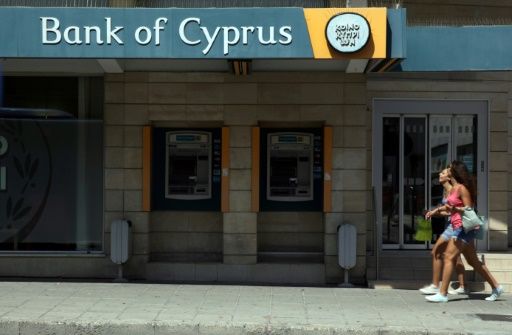Most of the banks in an EU-wide stress test seem to have ample capital or exceed the yardstick 10% of funds, according to a ‘worst case scenario’ exercise conducted on 89 systemic banks that represent about 70% of the European banking system.
Two of the three Cypriot banks considered for the stress test, Bank of Cyprus and Hellenic, dropped below the benchmark and may require more capital due to their inability to lessen their exposure to non-performing loans and mortgaged properties.
In its study, the European Banking Authority said that most of the European banks seem to have overcome the strains imposed by the Covid crisis with an aggregate common equity tier 1 (CET1) capital ratio above 10%, at the end of the stress test horizon.
While BoC and Hellenic and systemic RCB Bank were not among the 89 banks tested, the European Central Bank published selected information on 51 smaller banks, including the three Cypriot lenders.
Economist Fiona Mullen explained that since the bailout programme in 2013-15, these three banks had been directly supervised under the Single Supervisory Mechanism (SSM).
“The tests on the 51 banks found that the common equity tier 1 (CET1) ratios of 12 banks, including BoC and Hellenic, would fall below the minimum 8% threshold under the adverse scenario.
The CET1 ratio of RCB Cyprus would be between 11% and 14%,” she said in her monthly Sapienta Country Analysis for July.
In the analysis, she had noted that “both BOC and Hellenic Bank are already being obliged to issue debt securities to meet certain capital buffer requirements.
“The results of these tests may also lead to a higher requirement for core capital (equity), which in turn would require share issuance.
“The entry of Eurobank Greece into Hellenic might be in anticipation of such a requirement.”
Last month, Third Point Hellenic Recovery Fund L.P. said it was selling its 12.6% stake in Hellenic Bank to Athens-based Eurobank SA for an estimated €41.6 mln, ending fund manager Daniel Loeb’s unproductive venture into the Cyprus market.
After several capital increases since the initial rescue in 2013, Demetra is the biggest shareholder with 21% as of May 24, followed by Wargaming’s 20.2% and Third Point Hellenic Recovery Fund 12.6%.
Newcomers in the share capital include strategic investors Poppy SARL (representing US investment manager PIMCO) with 17.3% and Canadian-based Senvest International with 5.1%.
Hellenic Bank has also seen several changes at the board and management level in recent years to return it to profitability and better manage its takeover of the vast burden from the now-defunct Cooperative Central Bank.
NPEs, foreclosure suspension
The main obstacles to the progress of the two systemic banks in Cyprus are non-performing exposures (NPEs) that increased in the first quarter of this year, and the continued suspension of foreclosures, at least until October.
Both banks continue to offload mortgages to independent asset managers, while further staff reductions are on the cards, impacting their customer service and productivity levels.
Business news site Stockwatch quoted sources saying, “the picture of the Cypriot systemic banks does not correspond to the overall picture presented for the banks of the Eurozone.”
“They claim that the picture is not a cause for concern, but it does indicate that Cypriot banks may need to take measures to manage the credit risks they face after the end of 2022.
“They also point out that the simulation exercise takes into account the pandemic factor, but to a limited extent,” Stockwatch reported.
RCB Bank said the stress test results showed it had a common equity tier 1 ratio (CET1) in the adverse scenario of 11 to 14%, the highest in the Cyprus banking sector.
“The availability of significant capital reserves enables the bank to continue implementing its plans on further expanding its operations in Cyprus and thus steadily supporting businesses and in turn the recovery and growth of the economy,” said RCB Bank CEO Dr Kirill Zimarin.










